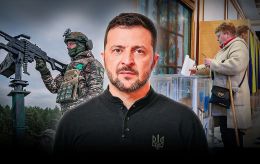Russia's nuclear ambitions. Can sanctions and competitors shut it down?
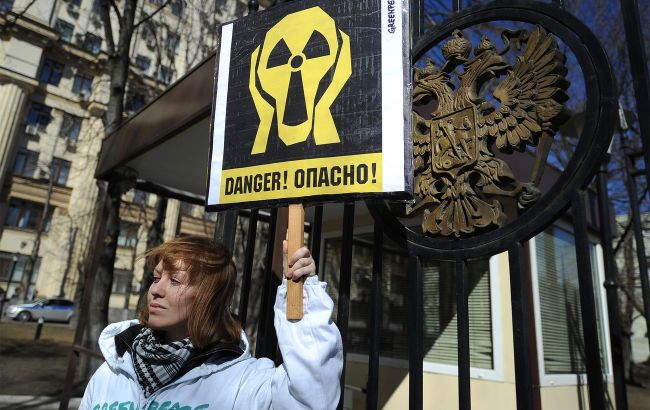 Photo: Greenpeace protest against Russian nuclear projects (Getty Images)
Photo: Greenpeace protest against Russian nuclear projects (Getty Images)
Russia's state-owned nuclear corporation Rosatom has largely evaded Western sanctions. The company continues its projects in Europe, feeding Russia's budget. Why did this happen, and can European countries cut their dependence on Rosatom? RBC-Ukraine explains.
Key questions:
-
Where in Europe are the Russians building nuclear power units?
-
What sanctions has the West imposed on Rosatom?
-
How did Ukraine eliminate its dependence on Russian nuclear fuel?
-
What sanctions should be applied to Russian nuclear technology?
Which competitor is attempting to displace Rosatom in the global market?
Rosatom is a major Russian state corporation that unites over 400 enterprises in the nuclear energy sector. It is also involved in producing nuclear weapons and servicing the nuclear fleet of the aggressor state. Moreover, in 2023, this corporation paid around $3 billion into Russia's budget at various levels.
The company is a legacy of the Soviet Union's nuclear programs and remains highly significant for Russia both economically and geopolitically. One would assume it should have been among the first targets of Western sanctions. However, only a few countries have imposed sanctions on Rosatom. The reason lies in the technologies it possesses, which are still needed by many countries. In addition, Rosatom has a wide network of lobbyists in the West.
Amid the near absence of sanctions, Rosatom can supply raw materials and electronics to Russia’s military-industrial complex and conventional weapons production - a fact reported by The Washington Post as early as January 2023.
Rosatom's business in Europe
The international environmental organization Bellona, headquartered in Oslo, Norway, has released a report titled 'Rosatom in the war years of 2023 and 2024' which provides a detailed analysis of Rosatom's business operations in Europe and the United States. According to the report, the foundation of Rosatom's activities in Europe is a fleet of 19 power units of Soviet-Russian design. These are the so-called VVERs – pressurized water reactors of two types (VVER-440 and VVER-1000), with installed capacities of 440 MW and 1,000 MW, respectively. Such units are located in Czechia, Slovakia, Bulgaria, Hungary, and Finland.
For a number of operating units, Rosatom continues to supply nuclear fuel. The company also supplied equipment during construction and will provide fuel for Unit 3 of the Mochovce Nuclear Power Plant in Slovakia, which was commissioned in January 2023. Russian specialists also provide maintenance services for units of their design, for example, at the Kozloduy NPP in Bulgaria.
Rosatom’s largest project in Europe is the construction of the second stage of the Paks Nuclear Power Plant in Hungary (Paks II, Units 5 and 6). In August 2023, the Hungarian nuclear energy company Paks II Nuclear Power Plant Ltd. signed a contract with Atomstroyexport, a Rosatom subsidiary that builds nuclear power units abroad. According to the Bellona report, in the fall of 2023, the Paks II construction site was visited by Hungarian Foreign Minister Péter Szijjártó and Rosatom Director General Alexey Likhachev.
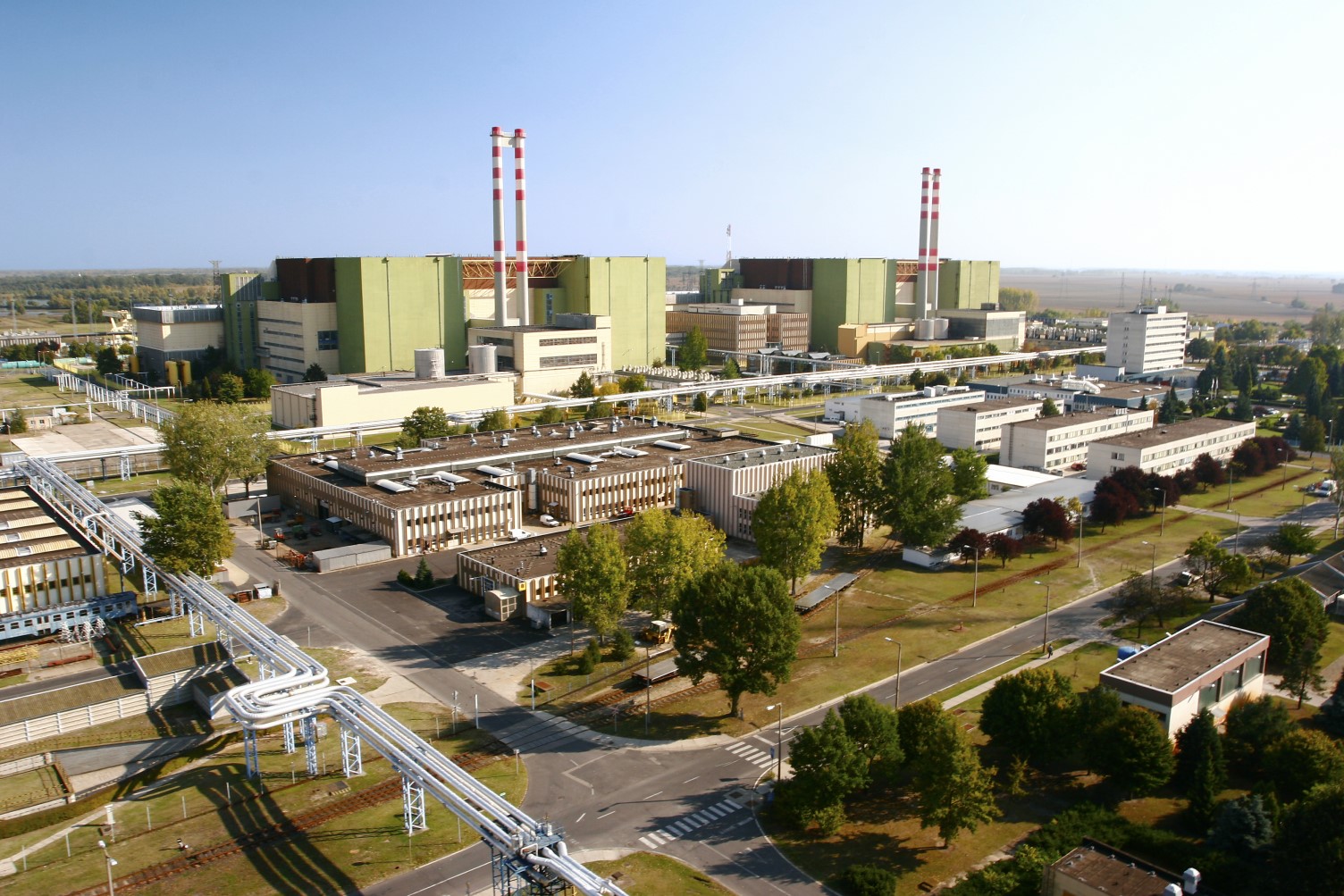
Photo: Paks Nuclear Power Plant in Hungary, operating power units (photo by operator company MVM)
A large number of contractors and subcontractors from across Europe are involved in the construction of the fifth unit of Hungary's NPP. According to Reuters, Hungary received a €10 billion loan from Russia to finance the construction of two units with a capacity of 1,200 MW each, for a total cost of €12.5 billion. In November 2024, Hungary's National Atomic Energy Authority approved the preliminary safety report for Paks II, allowing the first concrete to be poured at the site, which is expected to happen this fall.
Together with the French nuclear company Framatome, Russian specialists are attempting to launch a nuclear fuel production plant in the German city of Lingen. According to Olha Kosharna, co-founder of the NGO Anti-Crisis Nuclear Expert Center of Ukraine, the two companies have already delivered part of the equipment. This equipment was transported through France and is intended for manufacturing fuel under the license of TVEL, a Rosatom subsidiary that produces nuclear fuel for VVER-type reactors.
"What's more, Framatome has signed contracts to supply fuel that it doesn't even have yet. This is a clear case of France's double standards," the expert said.
Weak Western sanctions policy
As of today, among Western countries, sanctions against Rosatom's structures and managers have only been imposed by the United Kingdom, the United States, and Canada. They did so in 2023. At the EU level, sanctions against Rosatom have still not been introduced. As is typical, such decisions are blocked by Slovakia and Hungary.
Budapest consistently defends the construction project of the Paks-II nuclear power plant. It was excluded from the EU's 12th sanctions package against Russia (December 2023), according to a Bellona report. In June 2024, when the 14th package was adopted, all European contractors involved in the project were exempted from the requirement to obtain permits from their governments to participate.
At the end of June this year, even the United States lifted sanctions that had been imposed on the Hungarian project by the previous administration. Commenting on this decision, Péter Szijjártó called Biden's sanctions "politically motivated," thanked Donald Trump, and announced that large-scale equipment for Paks-II is already being manufactured at Russian and French plants.
A good example for Europe to follow is Finland. Before the full-scale invasion, this country was building Unit 1 of the Hanhikivi nuclear power plant together with Rosatom. By early 2022, preparatory work was already underway at the construction site. However, in May, the Finnish company Fennovoima decided to terminate the contract with the Russians, which brought both companies to arbitration.
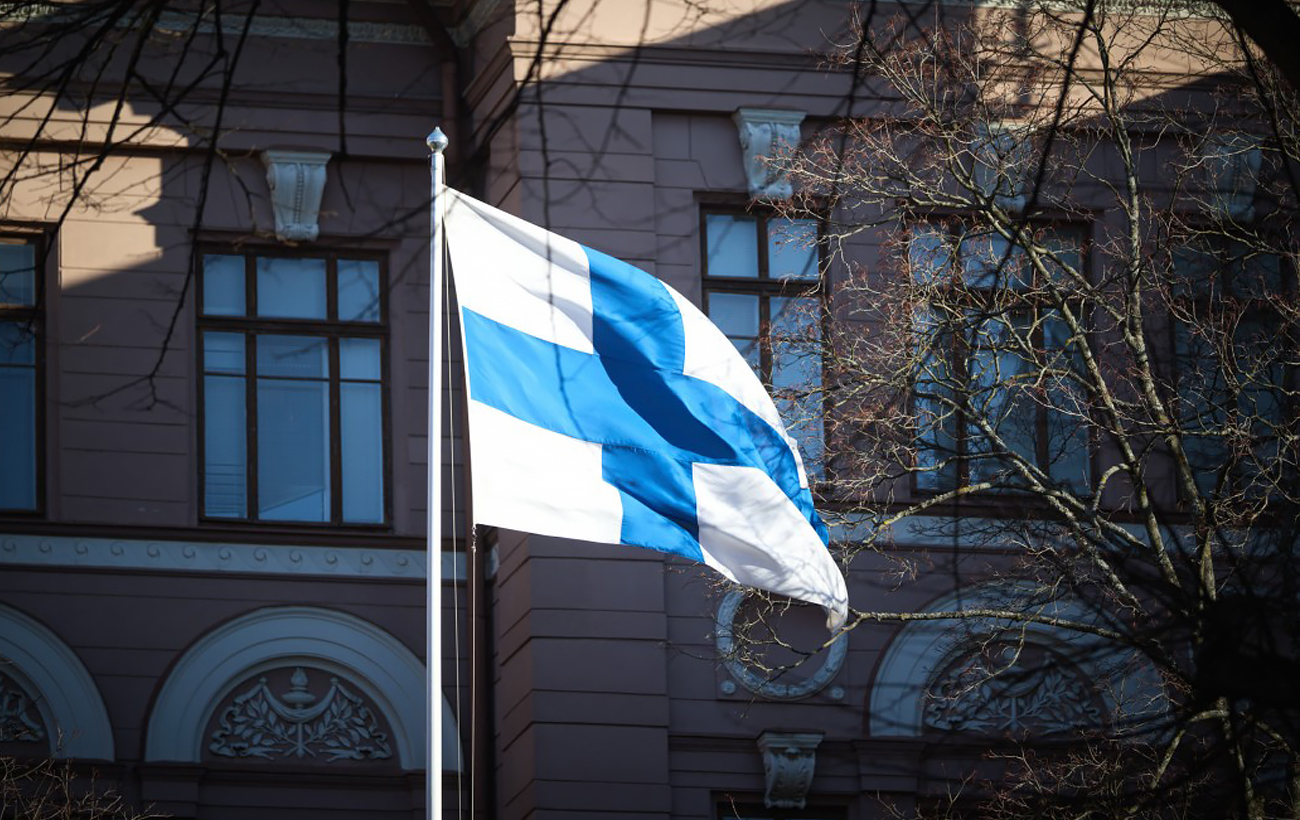 Photo: Finland is the only European country that halted nuclear construction with Russia (Getty Images)
Photo: Finland is the only European country that halted nuclear construction with Russia (Getty Images)
The Finnish side is demanding €2 billion in compensation, while the Russian side demands €3 billion. The case is currently being considered by the Moscow Arbitration Court, with the next hearings scheduled for March 2026. Fennovoima has purchased the land and property at the construction site and plans to sell these assets, according to Bellona's report.
Finland is transitioning to nuclear fuel alternatives to Russian supplies. In November 2022, it signed a contract with the American company Westinghouse, and in September 2024, it received its first batch of Westinghouse nuclear fuel for the VVER-440 unit at the Loviisa nuclear power plant.
Rosatom in the US market
In the US market, the Russian company supplies uranium oxide – a concentrate derived from uranium ore. This is an intermediate product (also produced by Ukraine) for further isotopic enrichment, which results in a direct component of nuclear fuel.
The US depends on imported uranium oxide for more than 90%, according to a report by the US Energy Information Administration. In 2023, Russia's share of the US uranium oxide market stood at 12%, according to the 2023 uranium market review. The US accounts for up to 50% of all uranium enrichment services exported globally by Rosatom. This business brought the Russians $624 million in 2024, Norwegian environmentalists report.
Unlike many European countries, the US has moved toward phasing out Russian uranium products. In May 2024, President Biden signed a law banning the import of uranium from Russia. The document allows exceptions for certain companies until 2028. At the end of last year, the US Department of Energy selected companies with which long-term uranium procurement contracts will be signed. The contracts will be for 10 years, totaling $3.4 billion.
Ukraine against Russia's nuclear monopoly
Ukraine imposed its first sanctions on Rosatom’s top managers and entities back in the fall of 2022. However, on August 8, President Volodymyr Zelenskyy introduced a new significant sanctions package targeting 18 individuals and 17 legal entities representing Rosatom’s business. The sanctions are aimed at people and organizations involved in attempts to integrate the captured Zaporizhzhia NPP into Russia’s energy system, the seizure of the Chornobyl NPP, the production and maintenance of nuclear equipment for military purposes, and the export of enriched uranium through Rosatom subsidiaries.
For example, the sanctions list includes Uranium One Holding N.V. (Rosatom's international uranium group), Rosatom Finance Ltd. (a financial structure for attracting investments), and Kirov-Energomash (a manufacturer of equipment for Russia’s defense industry). The sanctions imposed by Ukraine will remain in effect for 50 years.
"Ukraine's sanctions send a clear signal to partners about the need to adopt similar decisions in their jurisdictions," explained Vladyslav Vlasiuk, the President’s envoy for sanctions policy, to RBC-Ukraine.
Ukraine also serves as an example of the successful diversification of nuclear fuel supplies and rejection of Russian deliveries. Our country operates a fleet of VVER-1000 and VVER-440 reactors of Soviet design. At the start of independence, all of them were supplied with nuclear fuel from Russia. The project to supply fuel from an alternative producer – Westinghouse – dates back to 2000, when the governments of Ukraine and the U.S. decided to launch a joint initiative. In 2005, the pilot operation of American fuel began at the South Ukraine NPP.
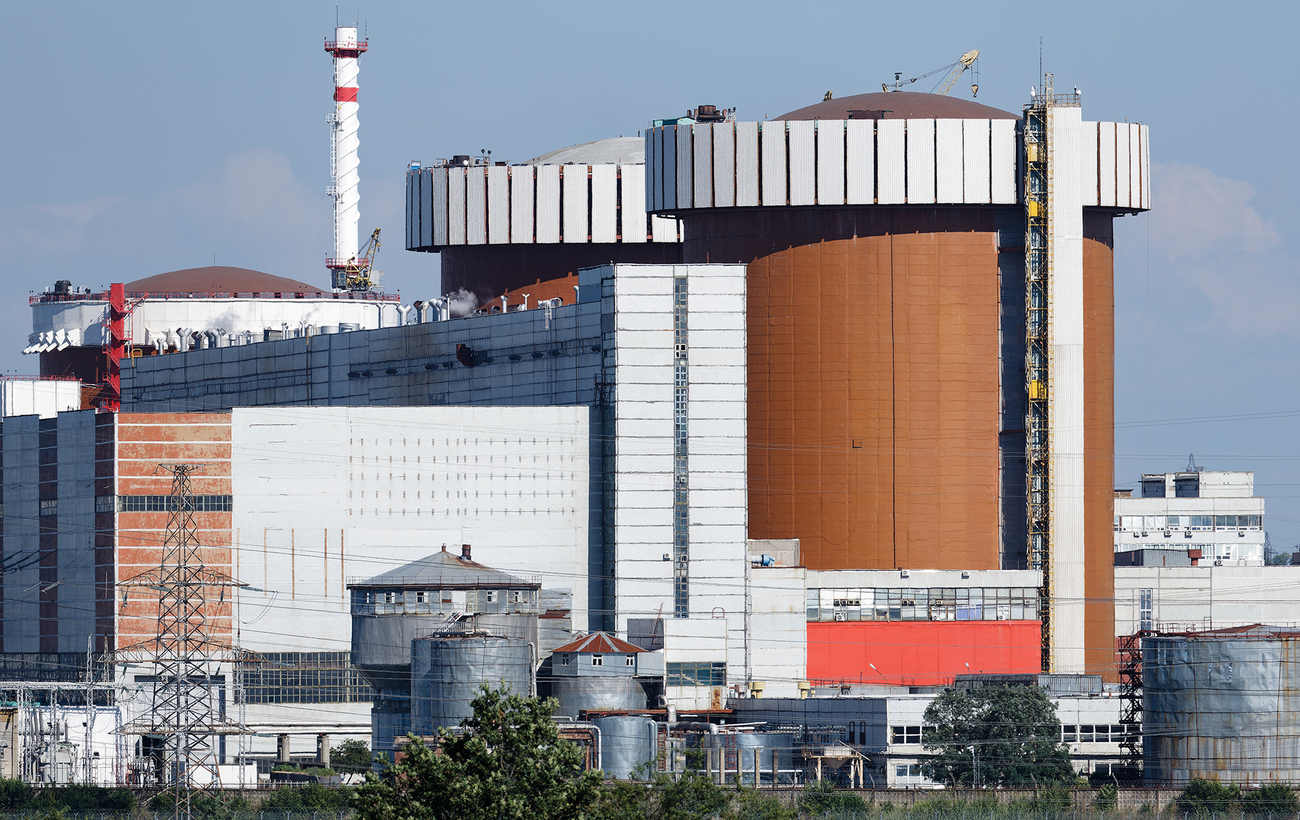
Photo: For the first time, American-made Westinghouse nuclear fuel was used at a power unit of the South Ukraine Nuclear Power Plant (Getty Images)
At the start of the full-scale invasion, Westinghouse fuel was being supplied to 7 of 13 VVER-1000 units. In February 2022, Energoatom decided to stop purchasing nuclear fuel from Rosatom. Today, all nuclear power units in Ukraine are loaded with Westinghouse-produced fuel, except for the units at the temporarily occupied Zaporizhzhia NPP, Energoatom noted.
Before the full-scale war, Westinghouse only produced nuclear fuel for VVER-1000 units. The two VVER-440 units at the Rivne NPP were supplied by Rosatom. However, after the invasion, Westinghouse resumed production of nuclear fuel for this type of reactor. In 2023–2024, the first batches of fuel from the new supplier were loaded into the reactors of the first and second units of Rivne NPP, Energoatom added.
Pushing Rosatom out through sanctions and competition
Ukraine is setting an example for its partners by showing that it's possible - and necessary - to end cooperation with Russians in the nuclear energy sector. "We believe no one should be dependent on Russian energy resources, including nuclear ones. For security reasons and to reduce Russia's revenues, cooperation with Rosatom should be stopped," commented Vlasiuk.
At the EU level, it will be difficult to impose sanctions due to the blocking positions of Budapest and Bratislava, but restrictions against Russians can be introduced at the national level. "Each country can apply personal and other sanctions on a bilateral basis," noted Olha Kosharna.
Rosatom exports nuclear fuel and technology abroad. The largest technology segment includes building power units, their technical maintenance, and future fuel supplies. "Fuel exports go, among other places, to Western countries, while technology exports mainly target third-world countries - but sanctions should hit both," nuclear energy expert Liudvig Lytvynskyi told RBC-Ukraine.
European countries are in no rush to take decisive steps on sanctions, though they have begun replacing Russian-made nuclear fuel - despite still needing supplies from Rosatom. The main reason for Europe's hesitance is its reliance on nuclear energy to reduce the share of hydrocarbon fuel, coupled with the need for another partner capable of building power units.
"Sanctions aren't imposed on Rosatom because they build the most reactors and are counted on in the fight against global warming. There are a few players in the global nuclear tech market, so Europeans are holding on to Rosatom," explained Maksym Pyshnyi, co-founder of the Association of Nuclear Industry Professionals, in a comment to RBC-Ukraine.
A significant factor in countering Rosatom is competition from US companies. For example, the Trump administration has been actively promoting small modular reactor projects by General Electric in countries like India and Türkiye, where Rosatom is building large reactors. At the end of May, Trump signed several executive orders that streamlined regulations and encouraged investment in nuclear energy.
"Over the past 30 years, we stopped building nuclear reactors in America - and that ends now. Today's executive orders are the most significant steps in nuclear regulatory reform in decades," commented Michael Kratsios, Director of the White House Office of Science and Technology Policy.
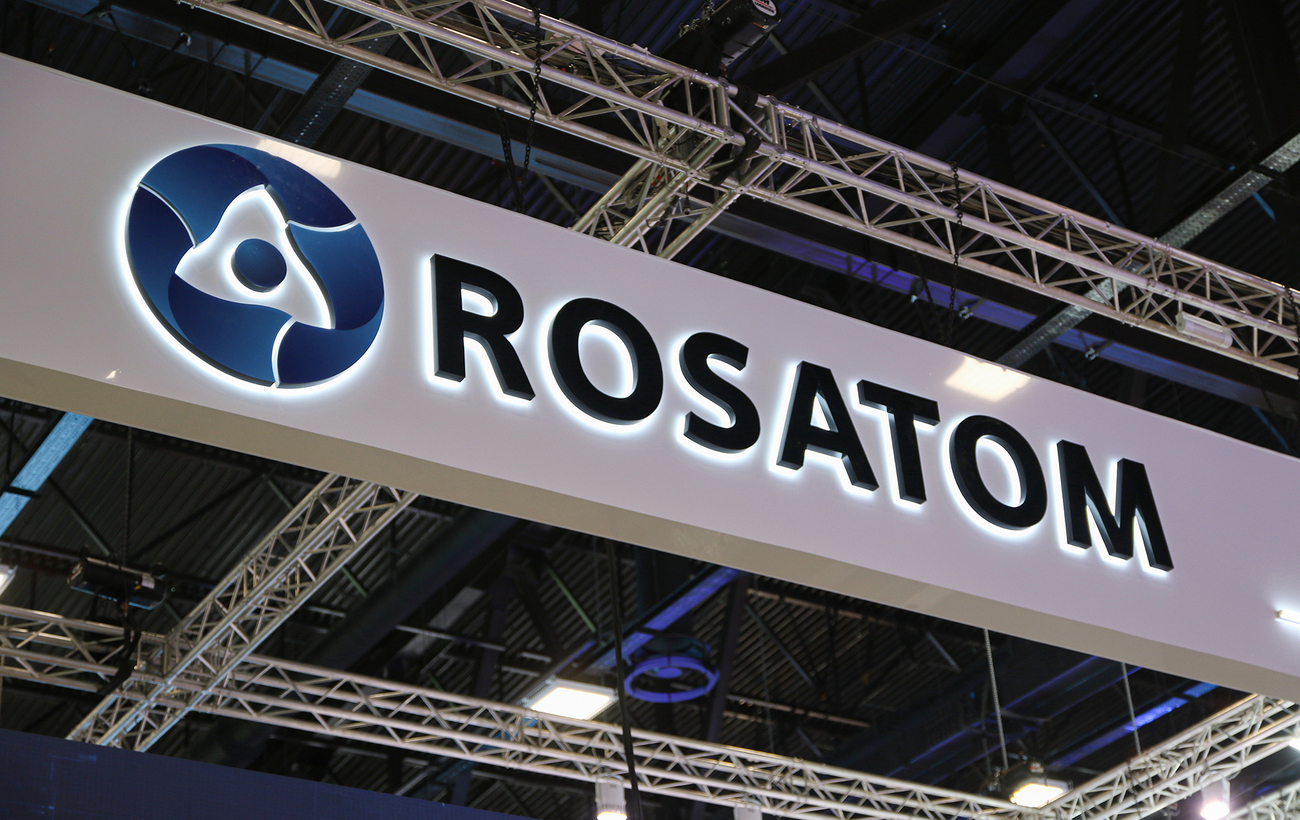
Photo: The West should impose a broad package of sanctions against Rosatom's business (Getty Images)
The White House is also pressuring the World Bank to revise its approach to nuclear energy and become more open to financing it. According to Pyshny, the combination of technology and access to capital creates big opportunities for US projects. "Russia wins bids to build nuclear power units because it offers credit financing. Once the World Bank starts providing funds, the situation will change completely," the expert believes.
Ukraine has shown how to completely and safely get rid of Russian nuclear fuel and impose comprehensive sanctions on Rosatom. Europe should follow this example and join the sanctions pressure. The Trump administration is actively promoting alternatives to Russian nuclear technologies. Economic pressure and market displacement will help curb Russia's nuclear ambitions.
